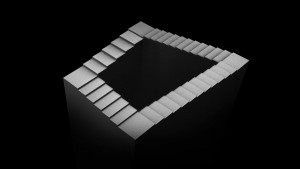Implicit dualism
It can be commonly observed that human beings, with few exceptions, have a dualistic way of thinking and speaking. According to Aristotelian logic it has to be either true or false. But should it be the case? Dualism could be explicit but it could also be implicit. How would you answer the above question about logic? Yes or No or both?
Dualism implicitly creeps into speech. For example ‘It is a sunny day’, ‘This statement is false’, etc. The listener seems to be left in the position of agreeing or disagreeing. On closer inspection it can be observed that both statements contain the word ‘is’. The first example ‘It is a sunny day’ could be considered dualistic. But what if it is intermittently raining throughout the day though sunshine makes its presence felt for most part of the day. Can it not be both a rainy and sunny day? Can the truth not be restricted to just two boxes?
The second example ‘This statement is false’ appears paradoxical. If it is true that the sentence is false, then it contradicts itself. If it has to be true that it is false that it is true that it is false and so on. How can this contradiction be solved by Aristotelian logic? One possible way would be to restate the sentences in E-prime (a prescriptive version of English language which excludes all forms of ‘to be’).
The use of E-prime can be critical in some situations. If a person is witness to a hit and run accident, he/she could state ‘The car involved in the accident was a black Hummer’ or in E-prime ‘The car involved in the accident appeared to be a black Hummer.’ The former statement gives an impression of surety and absolute which might not be the case. The latter statement is not absolute and informs the listener that the colour and make of the car were as interpreted and remembered.
E-prime appears to be just one way to make thoughts and speech more flexible and less dualistic.
Penrose Stairs Image Source: http://r-boisard.deviantart.com/art/Penrose-stair-243885764








Comments are closed.